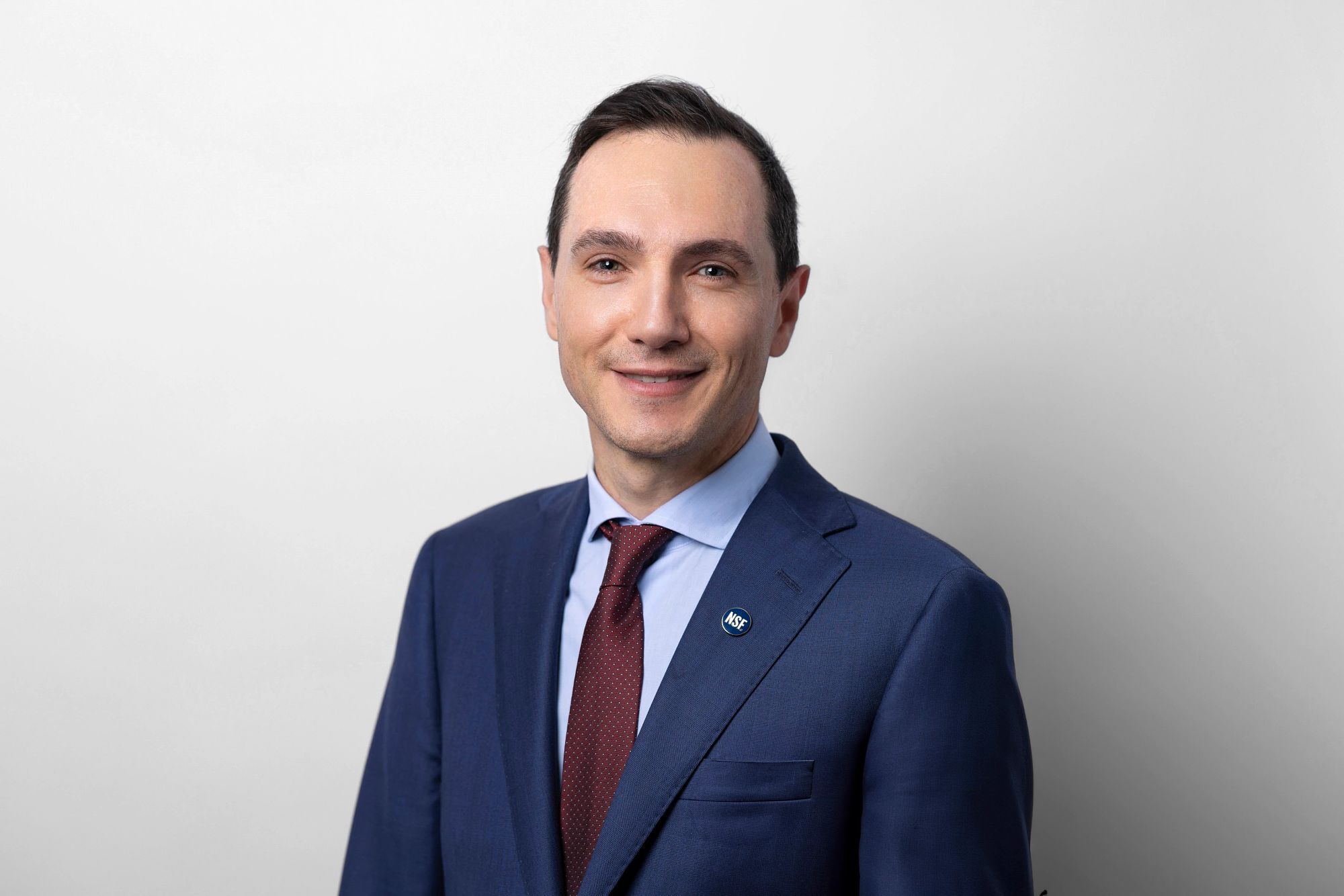NSF Addresses Urgent Need to Prevent Legionella Outbreaks
Updated July 5, 2018
NSF is dedicated to protecting and improving human health around the world. We achieve this by developing consensus national standards for the public health aspects of products and services, and separately, by providing professional services such as product testing, certification, auditing, advisory and training to protect the food you eat, water you drink, health care products you use and the environment in which you live.
In the past 75 years, NSF has facilitated the development of more than 100 public health standards for water filters, pipes and plumbing, food equipment, dietary supplements, vaccine storage and more, and has provided testing, certification, training and advisory services to assure compliance with these and other standards and regulatory requirements.
The urgent need to prevent Legionella. NSF's independent Standards Development group has been facilitating the development of a Legionella management standard called NSF 444: Prevention of Injury and Disease Associated with Building Water Systems. Regulators, public health departments and health care facilities want to better manage the risk of Legionella and other waterborne pathogens in distribution systems, cooling towers, premise plumbing, onsite water storage and other components of water systems. As an American National Standards Institute (ANSI)-accredited Standards Development Organization, NSF convened public health experts from academia, regulatory and industry sectors to develop this important public health standard.
The need for the standard is clear. In 2016, there were more than 6,000 cases of legionellosis and over 1,000 deaths in the U.S. There are more than 5.3 million commercial buildings and health care facilities that are potential sources of Legionella. Nine out of every 10 Legionnaires’ disease outbreaks could be prevented with a proper water management plan.
Separate and independent of the standards development process, NSF’s Building Water Services group is providing professional advisory services to help building owners identify and reduce risks in their water systems, and recently began to collaborate with health care expert Homeyer Consulting to help health care facilities conduct hazard assessments, inspections and/or testing to control Legionella in their water systems. Legionnaires’ disease kills 25 percent of those who acquire it from a health care facility. The partnership will support hospitals, long-term care facilities and other healthcare facilities in meeting a U.S. Centers for Medicare & Medicaid Services (CMS) requirement to reduce the risk of the potentially deadly Legionella bacteria and other pathogens in their water systems.
In May 2018, NSF organized a national public health conference on Legionella control, a three-day event in Baltimore that attracted 450 public health officials, scientists, water systems engineers, hospital administrators, and building owners and managers.
Multiple accreditations and oversight ensure independence. These are independent activities and NSF is fully accredited in both roles of standards development and the provision of professional public health services. NSF is accredited by the American National Standards Institute (ANSI) and the Standards Council of Canada to develop standards and also to provide professional public health services, such as the building water health services described above. To maintain accreditation, NSF adheres to the requirements and procedures that govern the standards development process, including requirements for openness, balance, consensus, transparency and due process. NSF also undergoes rigorous external audits and oversight to prevent conflicts of interest. Additionally, all NSF standards are ratified by the Council of Public Health Consultants comprised entirely of public health experts.
Neither new nor unique. NSF has been undertaking these same dual activities to improve public health and safety for nearly 75 years. Other organizations also develop standards and provide services to support them or other regulatory requirements. ANSI has affirmed in a letter that NSF's standards organization and its services group are independent of one another and that NSF is accredited to act in both capacities.
NSF's structure. NSF is not a government agency, is not financially supported by government and does not conduct fundraising campaigns. NSF participates in this important work as a private not-for-profit public health organization. Revenue generated by for-profit services is taxed appropriately and reinvested to help fund NSF's not-for-profit areas, including standards development.
Controversy. We understand that NSF 444 will place additional requirements on some in the industry, and some have been resistant from the start. Recently, a few consultants have created controversy around NSF’s collaboration with Homeyer Consulting to assist health care facilities in meeting a June 2017 U.S. Centers for Medicare & Medicaid Services (CMS) requirement to reduce the risk of Legionella in their plumbing systems. It’s important to note that these NSF/Homeyer services are based on an existing standard, ASHRAE 188, and not the yet-unpublished NSF 444 standard. These critics have refused to acknowledge NSF’s accreditation in the dual roles of standards development and provision of services, and have wrongly claimed it is not appropriate for NSF to provide professional services related to Legionella prevention and develop the standard. Ironically, the most vocal of these has previously worked with NSF’s Water program in similar ways. Once published, NSF 444 will be a public standard that any consulting group can use to provide professional services.
Sensitive to controversy. Unfortunately, regulators and government agencies are very sensitive to controversy and several have withdrawn from the NSF 444 standard joint committee. We have worked closely with the government agencies for many years and have the utmost respect for them and the work they do. NSF has reached out to share the facts and we are hopeful they will reconsider.
NSF will remain focused on public health. NSF remains committed to this important public health endeavor and NSF is intent on completing NSF 444. The NSF mission is to protect and improve human/public health and we do that through standards development and through the provision of professional services, as NSF has done for 75 years.
Editor’s Note: Media interested in interviews or more information can contact Andy Henion, at media@nsf.org or +1 734 418 6624.
Share this Article
How NSF Can Help You
Get in touch to find out how we can help you and your business thrive.

What’s New with NSF

NSF Celebrates 50 Years of the Safe Drinking Water Act
December 16, 2024
Brooklands New Media’s Publication On NSF’s Global Animal Wellness Standards (GAWS) Not Endorsed by NSF
November 25, 2024
NSF Announces Participation in Sustainable Foods 2025, CNBC Docuseries
November 18, 2024